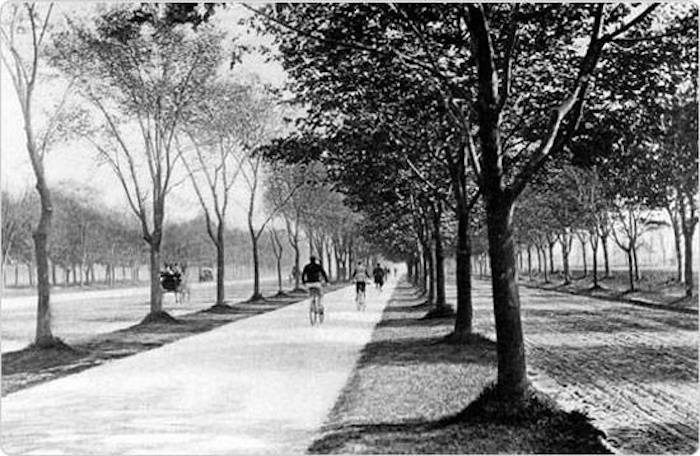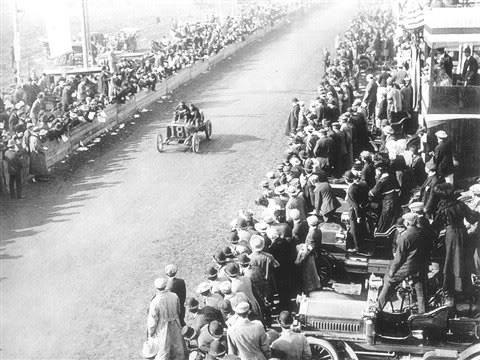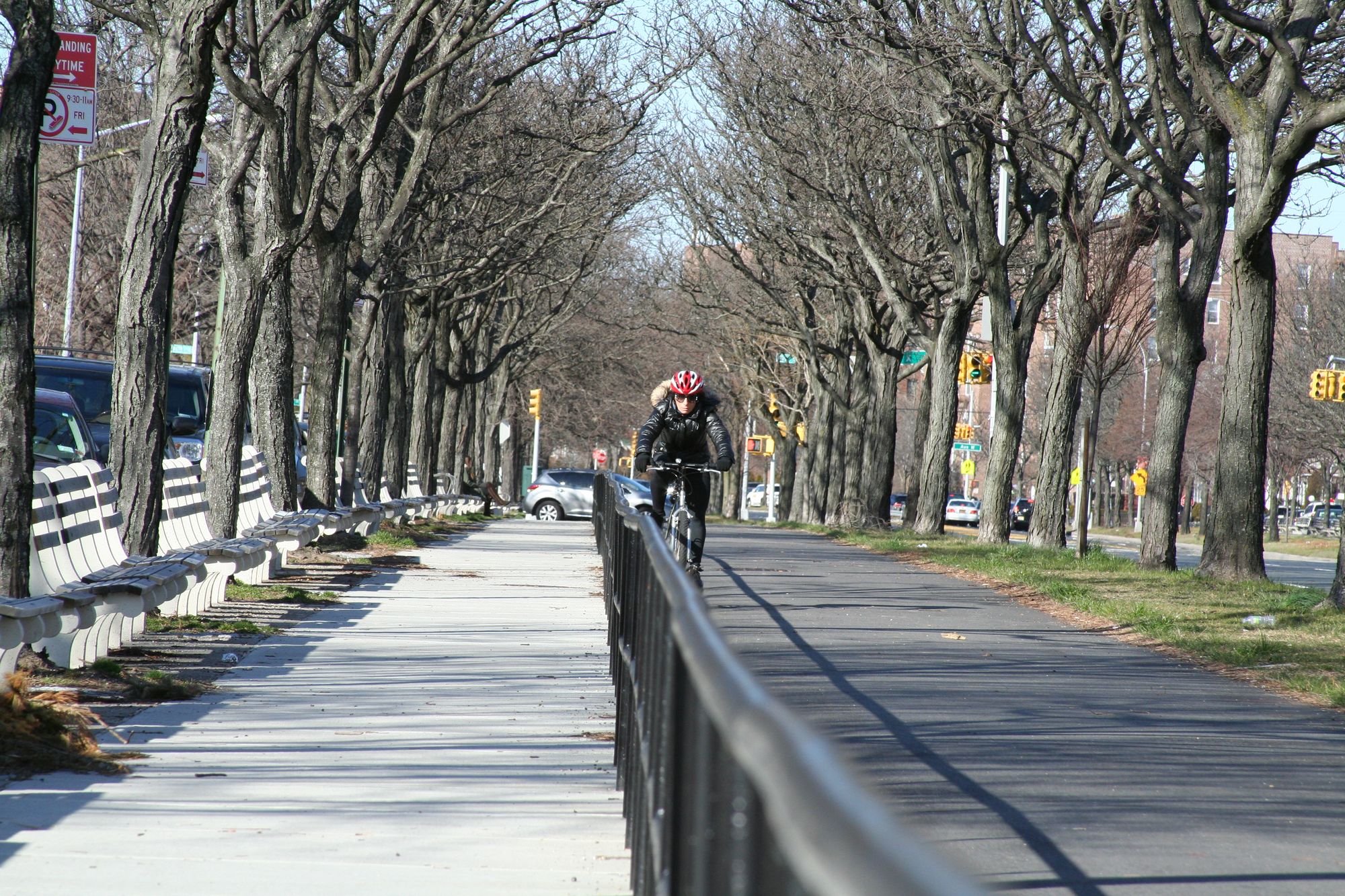Ocean Parkway — The Revolutionary Road


Ocean Parkway serves as a major connector between not only northern and southern Brooklyn, but also the Belt Parkway and the Brooklyn-Queens Expressway. It is an interesting, and essential part of getting around Brooklyn, and it was originally designed with the purpose of getting southern Brooklynites to Prospect Park, according to the Brooklyn Hopper.
In fact, it was designed by the same people who made Prospect Park, and Central Park. Calvert Vaux and Frederick Law Olmsted first imagined Ocean Parkway as a long wide road, lined with trees, like the boulevards they saw in Berlin and Paris in the mid-1860s, according to the Park’s department’s history of bicycling.
Vaux and Olmsted started building Ocean Parkway in 1874, and it was completed two years later in 1876. It quickly became a popular spot for racing horses, and carriages — giving it the name “Ocean Parkway Speedway,” among jockeys.
For over 30 years, Ocean Parkway was used as an unofficial racetrack. In 1908, open betting was banned, putting an end to the races there.

Bicyclists wanted to get in on the action as well, so Good Roads Association campaigned with other sports fans to create the country’s first ever bike lane on Ocean Parkway.
The Ocean Parkway Bike Path opened on June 5, 1894, and on the opening day, 60 bicycle clubs from New York and New Jersey blazed the bike trail that is still there to this day. Local authorities back then still worried about racing and gambling, so they restricted the speeds on the bike lane to 12mph.

It’s funny to look back and see how bike lanes were so celebrated all those years ago, in comparison to today when bike lanes are often a source of contention between cyclists, drivers, pedestrians, and politicians. Maybe we can learn something from a little Brooklyn history.




